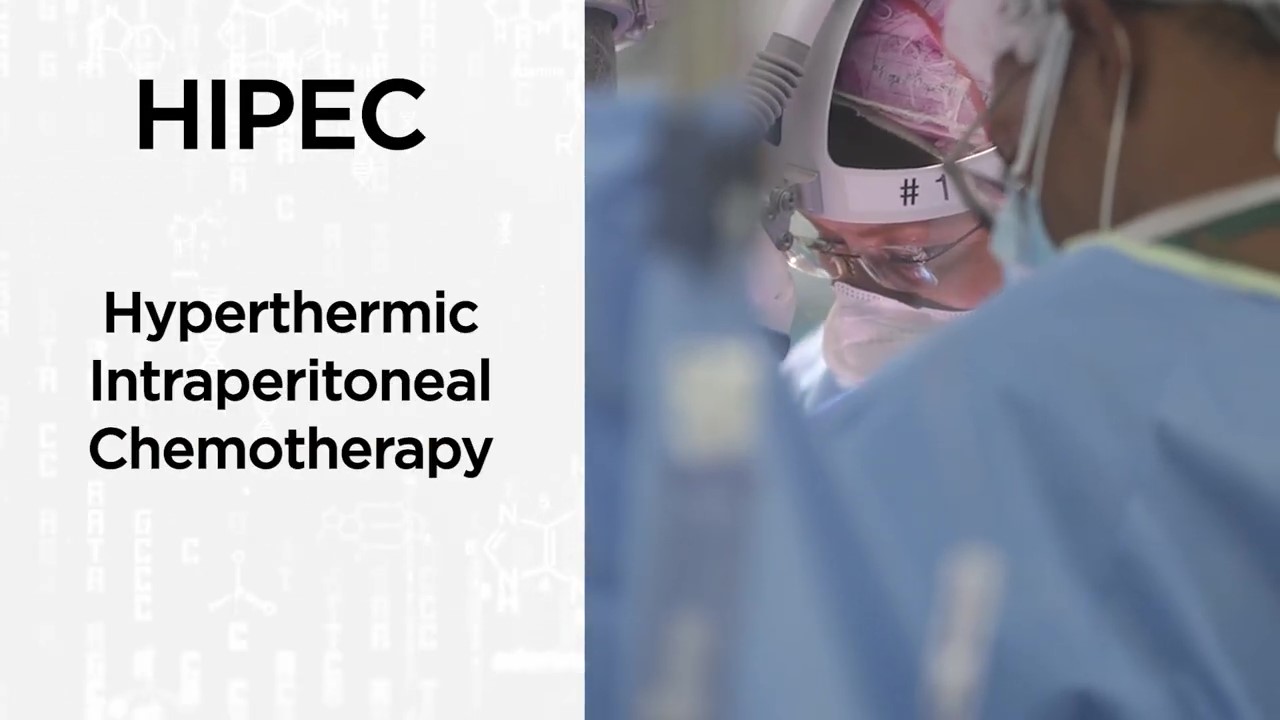Focusing on You: Hot Chemotherapy During Surgery

The HIPEC procedure combines surgery and heated chemotherapy and is administered to cancer patients in the operating room.
For patients with complex cancer cases that spread in the abdominal or chest cavity, Sylvester Comprehensive Cancer Center is a leader in a procedure that combines surgery and heated chemotherapy. Mecker Moller, M.D., a surgical oncologist and head of the HIPEC program at Sylvester, (which stands for hyperthermic intraperitoneal chemotherapy), explains how this highly intensive treatment is administered to cancer patients in the operating room.
Video transcription
Dr. Mecker Moller:
We’re going to be working with the urology team, the colorectal team, we, the surgical oncologists.
Narrator:
For patients with complex cancer cases that spread in the abdominal or chest cavity, Sylvester is a leader in a procedure that combines surgery and heated chemotherapy.
Dr. Mecker Moller:
The HIPEC is a procedure that includes in addition to removing all the cancer that we find for tumors that do metastasize inside the abdomen is to instill or perfuse hot chemotherapy into the abdominal cavity.
Narrator:
At Sylvester, Dr. Mecker Moller heads the HIPEC program, which stands for Hypothermic Intraperitoneal Chemotherapy.
Dr. Mecker Moller:
This is not done in every hospital. This has to be in centers where you have the surgeons are trained to do these procedures where you have the level of complexity of these cases.
Narrator:
What kinds of tumors or cancers are you treating with the HIPEC procedure?
Dr. Mecker Moller:
The appendix. They can come from the colon. They can come from the stomach, from the ovaries, or also a specific disease called mesothelioma.
Narrator:
First, the team of surgeons works to remove all visible tumors. Then, Dr. Moller infuses heated chemo through catheters, connected to a perfusion machine and placed inside the abdominal cavity.
Dr. Mecker Moller:
In the HIPEC, we take care of the tumors that microscopic that we cannot see.
Narrator:
It all takes place in the operating room. Dr. Moller says this two pronged treatment approach could help extend the lives of some patients.
Dr. Mecker Moller:
We are not only treating patients, but we are training surgical oncologist that has gone to other institutions to develop their own HIPEC programs. We have residents and fellows working with us learning this procedure.
Narrator:
Because Sylvester is an academic cancer center, Dr. Moller and her team are also focused on pushing the mission forward.
Dr. Mecker Moller:
If we are able to be successful in removing all the tumors and doing the HIPEC, then we can, at least for the next two years, increase the chances by 50% of these patients getting to be disease free.
Tags: cancer, cancer treatment, Dr. Mecker Moller, HIPEC, hot chemotherapy, hyperthermic intraperitoneal chemotherapy, mesothelioma, ovarian cancer, Sylvester Comprehensive Cancer Center
